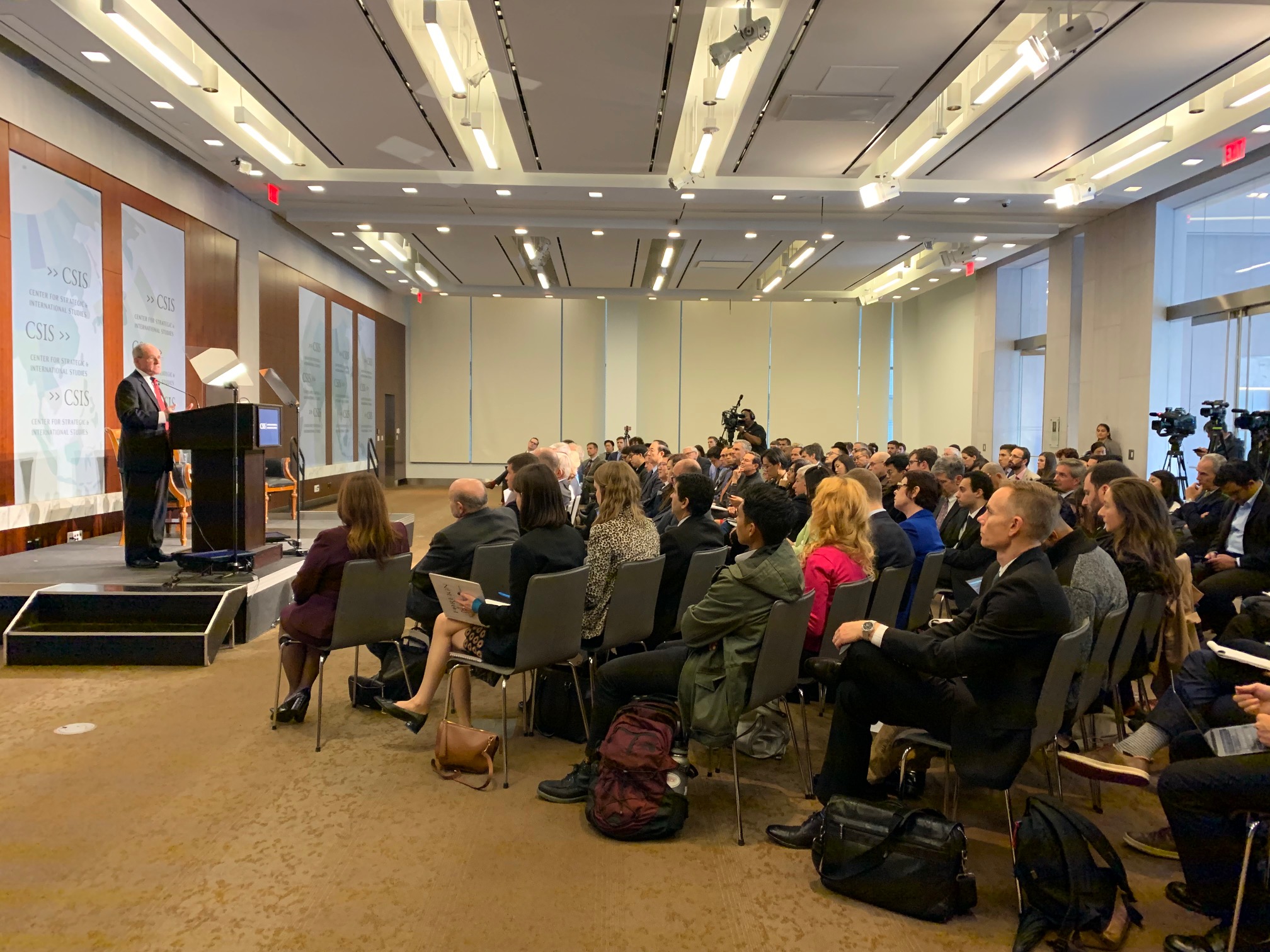Risch: U.S. and Europe Must Compete with China
WASHINGTON – U.S. Sen. Jim Risch (R-Idaho), chairman of the Senate Foreign Relations Committee, spoke today at the Center for Strategic and International Studies (CSIS) on China’s growing malign economic and political influence in the U.S., Europe, and across the globe, and the need for a cohesive transatlantic strategy and policy response.
“The United States and Europe share a vital interest in addressing the challenges posed by China. We both recognize China is no longer a developing country. It is a global power,” said Risch. “China is our economic competitor, and we both rightly demand greater reciprocity and China’s adherence to the rule of law and international norms… And leaders around the world have made clear that China must abide by its commitments and support an international system that is free, fair, and open. If China embraces these principles and truly wants to be a global leader in the 21st century, China will find a United States ready and willing to cooperate.”
During his speech, Risch highlighted the importance of U.S.-European cooperation to protect the shared values and norms that China aims to disrupt.
“Led by the United States and Europe, much of the world has created an open system of rules, norms, and institutions that upholds individual rights and freedoms, that advances market-based economic prosperity, and that safeguards shared security interests,” continued Risch. “Above all, we must ensure that the free international system we built together can withstand external pressures. Acknowledging the many opportunities for U.S. and European cooperation n against China will help us to work through our differences.”
Risch went on to propose a number of areas in which the United States and Europe can work together to combat China’s efforts to undermine transatlantic interests, including World Trade Organization (WTO) reform.
“A major priority for the U.S. and for European partners is WTO reform which we should all support,” said Risch. “The WTO remains crucial to a functioning international trading system, but to compete with China, we cannot put all our eggs in that basket. We must consider other forms of economic hardening, such as more cooperation on investment screening and better alignment on export controls to safeguard critical technologies.”
Following his remarks, Risch joined CSIS Senior Vice Presidents Heather Conley and Michael Green in a moderated discussion on opportunities and challenges associated with countering China’s spreading global influence.
A video of the chairman’s full remarks and moderated discussion can be found on the CSIS website here.

###